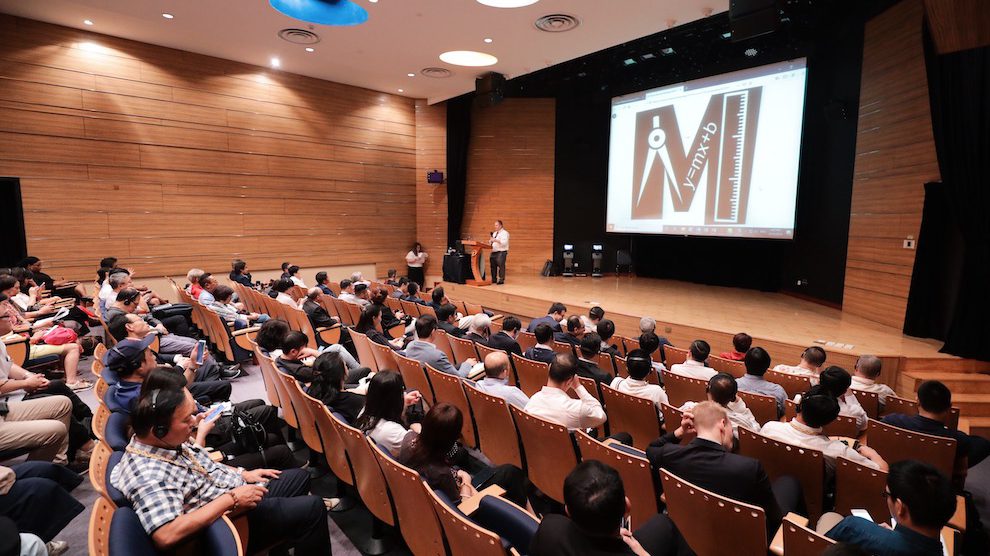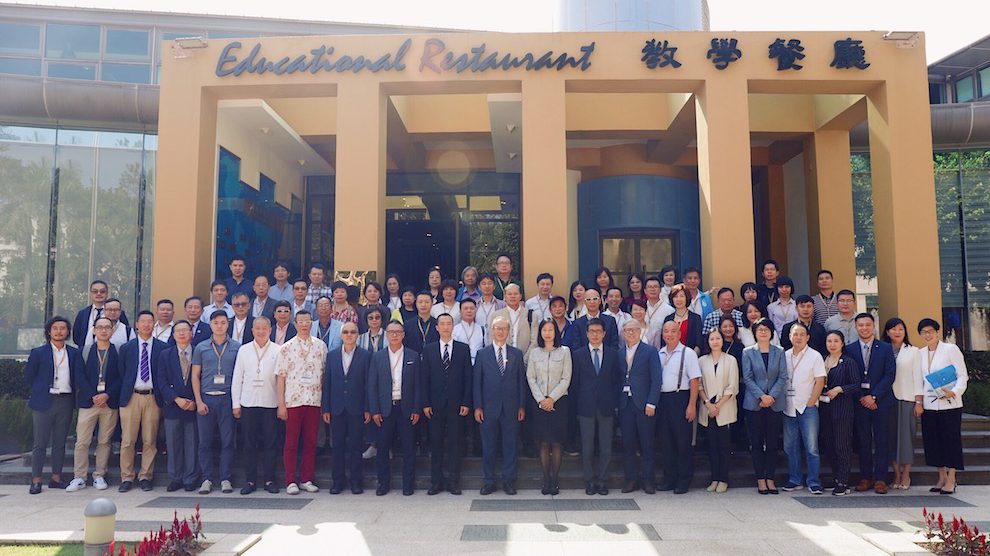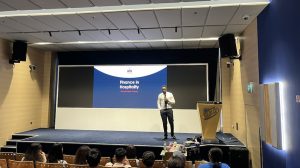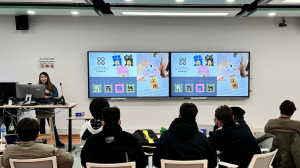The latest trends in the application of smart technology by the food and beverage (F&B) industry in the Guangdong-Hong Kong-Macao Greater Bay Area were a topic for discussion at IFTM recently. The event drew about 190 representatives of the F&B industry, academics, other kinds of experts and students from Macao and around the region.
Several speakers at the “Forum on Trends in Smart F&B Services” highlighted the leading role that Guangdong Province plays throughout the Greater Bay Area in using smart technology in restaurants. Other experts suggested technology did not diminish the enduring importance of the human touch to quality of service.
The conference was held at IFTM on 16 and 17 October. On the first day, a series of seminars looked at the latest developments in the F&B industry, Macao’s place in the UNESCO Creative Cities Network in the field of gastronomy, and the latest applications of smart technology in restaurants. The second day saw an excursion to some of the new draws for tourists in Macao and on the neighbouring island of Hengqin.
The Alliance for Developing Macao into the Guangdong-Hong Kong-Macao Greater Bay Area Tourism Education and Training Base arranged the conference. The Alliance was formed in 2017 to bring together 3 Macao SAR Government bureaus and 10 higher education institutions in Macao, including IFTM, which coordinates the Alliance. The Alliance’s purpose is to support the development of Macao as a base for tourism education and training for the Greater Bay Area, a role envisaged by the Central People’s Government.
Guangdong Restaurant Association Executive Chairman Mr. Tan Haicheng was one of the leading members of the F&B industry that attended the conference. “Smart trends in food and beverage can provide consumers with easier access to information, while lowering costs and raising the effectiveness of operations,” he said.
Mr. Tan warns that advances in technology can lead to new challenges for people working in the industry, especially those near the bottom of the hierarchy. “They may be replaced by robots”, he said. Or, he added, a particular business might need fewer workers in frontline positions because technology made each worker more efficient. This effect may be countered, Mr. Tan thinks, by the need among businesses for more managers capable of using new technology.
Mr. Tan advises recent graduates that want to get into the restaurant business to pay attention to the changes in the F&B industry and prepare accordingly. He said preparation should include doing internships and learning more about information technology.
The human touch
Also attending the conference at IFTM was Hong Kong Association of Restaurant Managers Chairman Mr. Leung Chi Wai. Mr. Leung said Mainland Chinese restaurants were adopting smart technology more rapidly than Hong Kong restaurants. “The industry in Hong Kong falls behind Mainland China,” he said. “Hong Kong youth should take a look at market development in different places.”
While acknowledging the importance in adopting smart technology, Mr. Leung stresses the value of the human element in service industries. “I’ve visited a restaurant staffed by robots before,” he said. “It is important that we rely on machines for certain tasks, but I think food and beverage is more about communication between people. Interactions and social relationships are the most important for the industry.”
United Association of Food and Beverage Merchants of Macao Executive Director Mr. Tong Kai Chung points out how important tourists are to restaurants in Macao. He estimates that about 60 percent of diners in Macao restaurants are tourists. Mr Tong emphasises that visitors look not just for particular kinds of food and drink when they go to a restaurant, but also for good service and a special experience.
Mr. Tong advises IFTM students considering working as managers in the restaurant business to prepare well. “Try to understand thoroughly the sector, to work as a junior-level employee and learn the basics,” he said. “Then combine your practical experience with the theoretical knowledge gained at the Institute to further develop your career.”
Tourism teaching
The “Forum on Trends in Smart F&B Services” was the latest event hosted by IFTM with a view to facilitating and enhancing the development of the Greater Bay Area.
The Greater Bay Area groups the cities of Guangzhou, Shenzhen, Zhuhai, Foshan, Huizhou, Dongguan, Zhongshan, Jiangmen and Zhaoqing – all in Guangdong Province – with the Macao SAR and the Hong Kong SAR. The purpose of the grouping is to advance and integrate the development in several sectors of its component parts, from economy and trade, to environment protection and education.
The Central People’s Government promulgated in February the Outline Development Plan for the Guangdong-Hong Kong-Macao Greater Bay Area. The plan envisages the development of Macao as a base for tourism education and training. IFTM is playing an important role in putting that part of the plan into action. The Institute is involved in initiatives related to tourism education which are meant to serve the purposes featured in the plan.
One such initiative was announced on 15 October, when representatives of IFTM, of the Zhuhai Culture, Radio, Television, Tourism and Sports Bureau and of Zhuhai Municipal Zhu Kuan Group Holdings Co., Ltd. signed an agreement to set up on Hengqin, which is part of Zhuhai, an education collaboration centre which will focus on tourism education.
Another initiative was the formation of the Guangdong-Hong Kong-Macao Greater Bay Area Tourism Research Alliance. In academic year 2018/19 representatives of IFTM, of the Hong Kong Polytechnic University and of Sun Yat-sen University in Guangdong signed an agreement for forming the alliance so they can conduct joint research with a view to developing tourism in the Greater Bay Area.










